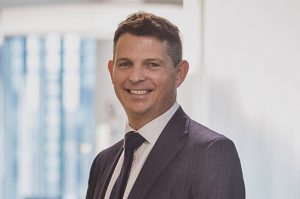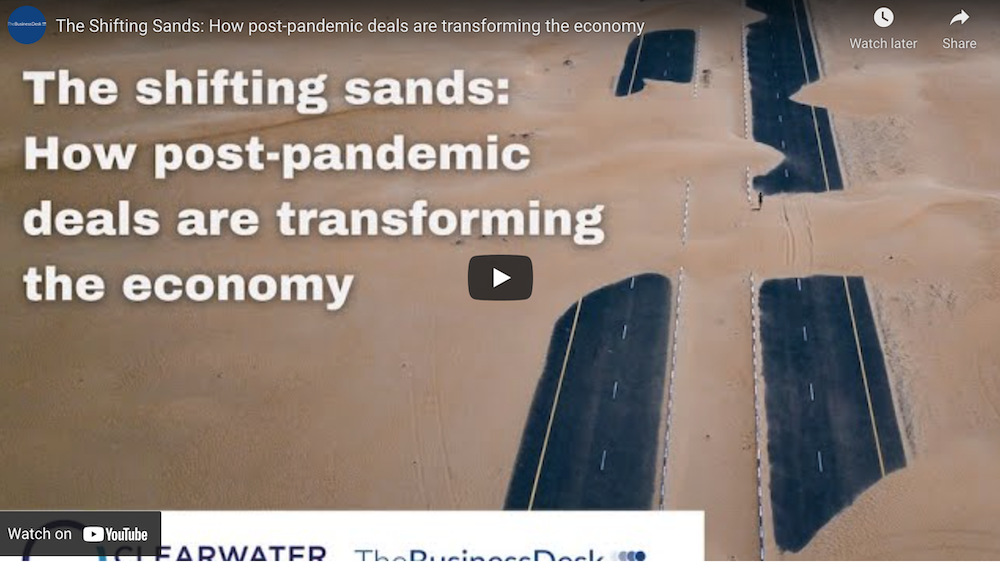“There are headwinds but we shouldn’t get all doom and gloom”


That was one of the questions put to an expert panel during a recent webinar hosted by TheBusinessDesk.com in partnership with Clearwater International, entitled: “The shifting sands: How post-pandemic deals are transforming the economy.”

Richard Goldsack, Clearwater International
Richard Goldsack, partner, Clearwater International started by saying: “Corporate financiers are always eternally optimistic, so I’m not going to talk the next 12 months down.”
He said certain trends including “buy and build” will continue, noting the trend is making “trade buyers much more sophisticated” because private equity money is supporting consolidators across the markets and a lot of trade buyers are PE backed.
Goldsack also noted that in terms of overseas buyers he expects to see a return of the Asian markets, noting they have been relatively quiet so far.
“If you look at China and Japan, that money might come back in and really compete with the US,” he said, although he caveated this with a “not sure”.
He noted that while he predicts a busy six to 12 months, “The volumes can’t stay this high forever either, unless take privates [the act of taking a public listed company back into private ownership as the Issa brothers have done with Asda] emerge as a real volume play.”
Goldsack added that with private equity having invested and got deals done while playing what he called a “frothy market” moving forward the “flight to quality [businesses] will probably become even more intense.”

Paul Mann, Squire Patton Boggs
Paul Mann, partner, Squire Patton Boggs who heads the firm’s national private equity group, agreed with Goldsack, noting he doesn’t think the key drivers will change over the next six to 12 months.
He said while he does not perceive “nervousness” he believes that within the professional services arena and the corporate finance sector there will be a focus on, “ensuring your people have appropriate breaks and a bit of down time” something he notes has been a challenge for the last 15 to 16 months.
He also explained: “I’m not saying the bubble will burst but I think the general level of activity will eventually slow, it’s inevitable. But I think it’s set fair for a period of time.”
He said he expects the sectors which the whole panel mentioned earlier in the session, particularly including those in the technology field such as SaaS businesses, or those in edtech, medtech and gaming will continue to do well and prove popular within the market.
Mann noted that digital transformation businesses as well as e-commerce and logistics companies will also see the benefit of changing trends fuelling growth.

Daniel Smith, LDC
Daniel Smith, head of Yorkshire at LDC, agreed that although he is optimistic that “deal flows will be there” there are perhaps doubts about whether it can “quite maintain what it has been in the last 12 months.”
He added: “If I was a business owner I’d still have lots of conviction about bringing a business to market because I think the appetite will be there and we’re certainly ready to support businesses.”
Despite the unanimous optimism of the panel, each member also shared the biggest challenge they foresee for the market into next year.
Smith said: “There are some genuine challenges. You’ve seen it across supply chains, causing disruptions, you’re seeing the sort of strange dynamic of labour shortages but also a big pool of labour coming off the furlough scheme, and quite how that plays out is probably difficult to tell.”
He added he believes to meet those challenges businesses may need to, “relook at the capital structure in the balance sheet, and whether that drives opportunity or challenge depends on how resilient and forward looking the management teams are.”
Mann echoed an earlier point stating the challenge for 2022 will be around people.
He explained that across all sectors there is a “talent war” which means there is a challenge to keep internal teams incentivised because of the lack of a break brought about by the pandemic but also a changing labour market.
Mann said: “For Yorkshire businesses, there are a number of roles coming up that you would say are traditionally roles from further south, but because of the world we’ve lived in for the last 18 months, they can be done from God’s own county.
“So I think the people side is a key [challenge] for everyone frankly.”
Goldsack added that while he and the panel remain optimistic about the future of the deals market the wider macro environment will likely “get a bit gloomy.”
“I don’t think it’s going to get negative overnight, but I think inflation is a theme across supply chains, interest rate concerns, and I think there will start to be some fairly high profile failures,” he said.
“All of that starts to hit the press and it breeds negativity, which is the worst thing in terms of confidence in our markets.
“So I think that will become a challenge, perhaps not in the next three months but I’d be amazed if not in the next 12 months.”
He said despite headwinds coming, he believes he and his colleagues have to stop negative headlines from getting in the way of doing deals.
Smith agreed, saying: “There will be headwinds but I think there are enough positives out there outweighing some of those, so we shouldn’t get all doom and gloom!”
You can catch up on the full webinar below, or hear about the trio’s views on how the market has changed as a result of the pandemic in our earlier article.








